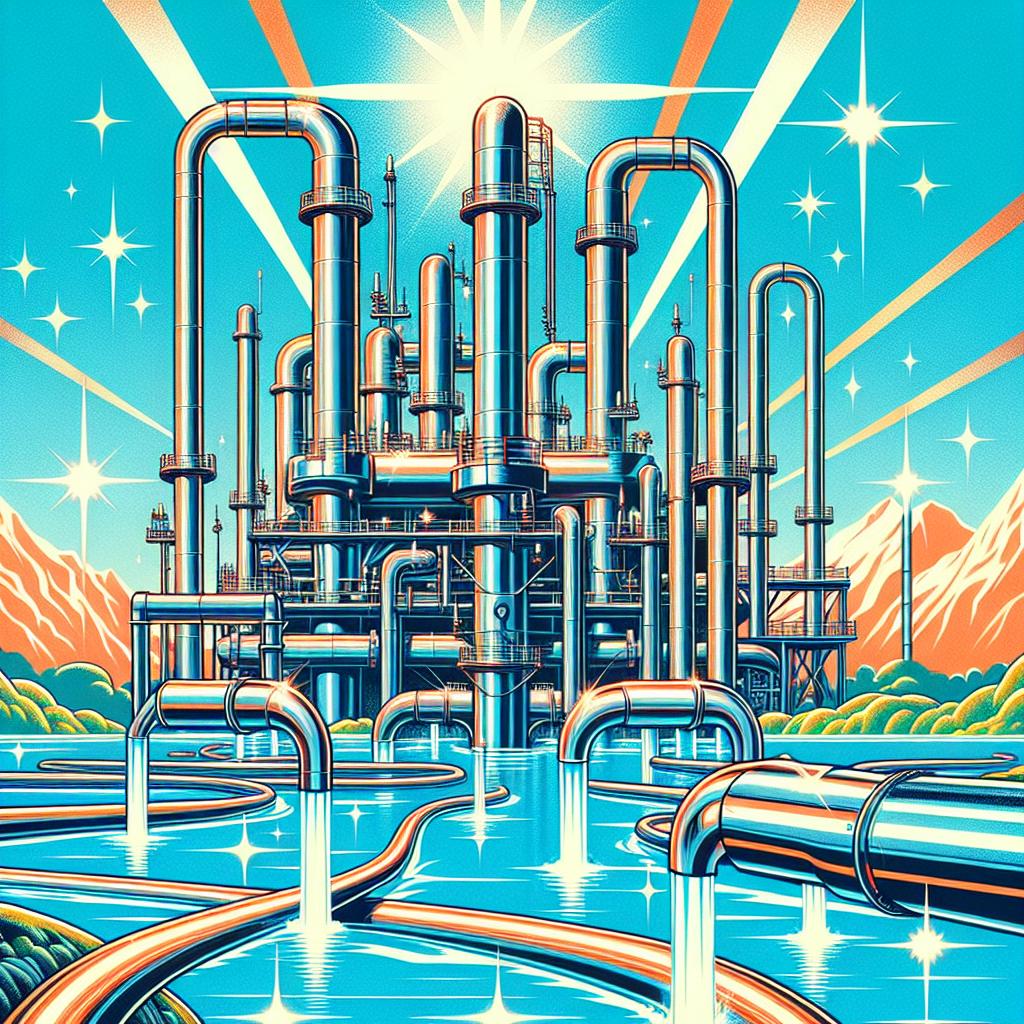Transforming America’s Water Infrastructure
The Biden administration is making significant strides in addressing one of the most pressing public health issues facing the United States: the pervasive presence of lead in drinking water. Through the ambitious Get the Lead Out Initiative, there are plans to replace 100% of lead pipes in the nation. This initiative is not just a logistical challenge; it’s an imperative that mirrors a long, often troubling history of water infrastructure in the U.S.
Lead pipes pose serious health risks, especially to children and pregnant women, with exposure linked to developmental issues and cognitive deficits. Hence, the urgency attached to replacing these pipes is palpable. By setting the goal of complete replacement, the Biden administration is seeking to rectify generations of neglect and inequity associated with water supply systems.
The Fight Against Chemical Contaminants
As concerns regarding lead persist, another looming threat has surfaced: per- and polyfluoroalkyl substances (PFAS). Often referred to as “forever chemicals” due to their resistance to breaking down in the environment, PFAS have been tied to serious health problems, including cancer and liver damage. The recognition of this hazardous class of chemicals has spurred advocates to call for stringent measures to tackle their presence in water systems throughout the nation.
Efforts are underway to reduce toxins such as PFAS, which have infiltrated both urban and rural water systems. The challenge lies not just in identifying PFAS sources—often connected to industrial discharges and firefighting foam—but also in securing the funding and political will necessary to reclaim contaminated resources. Initiatives focused on environmental justice must frame clean water access as a universal right, rather than a luxury afforded only to those living in affluent neighborhoods.
Recognizing Water as a Fundamental Right
Advocates are increasingly asserting the notion of a ‘right to clean water’ within the broader context of environmental justice reforms. Water, a fundamental human need, has often been used as a commodity, leaving vulnerable communities at a disadvantage. Historically, systemic inequalities have exacerbated disparities in clean water access, particularly affecting low-income and marginalized groups who often find their concerns sidelined in policy decisions.

The movement for comprehensive environmental justice is also harmonizing with the urgency to claim clean water as a basic human right. The initiative aims to empower local communities to advocate for changes that prioritize their right to clean and untainted water, rather than position them as passive receivers of governmental decisions.
The Intersection of History and Policy
Understanding the ongoing struggles for clean water necessitates reflection on American history. The legacy of racial segregation and economic disparity has resulted in deep-set injustices that persist in various forms. Following the lead contamination crises—such as that of Flint, Michigan—awareness regarding systemic failures to address basic utility needs has fueled calls for reform. Similar systemic failures are evident with issues like the prevalence of PFAS contamination, demonstrating how deeply interwoven social, economic, and environmental injustices can prove detrimental to community health.
By pushing forward initiatives like the Get the Lead Out Initiative, policymakers are not only correcting these injustices but also creating a pathway for communities to reclaim their rights to basic resources. Yet, such efforts need sustained activism and public interest to hold leaders accountable.
A Collaborative Path Forward
Real change in the realm of water infrastructure demands collaboration at the local, state, and national levels. Engaging policymakers, industry players, environmentalists, and the community can yield fruitful discussions that pave the way for sustainable solutions. Advocacy organizations are instrumental in this process, using data to demonstrate the immediate health impacts of contaminated water while emphasizing solutions that address both environmental and social equity.
Ultimately, as the U.S. works to fortify its water infrastructure, the conversation around environmental justice must occupy a central role. Ensuring that all American communities have access to clean water is not merely a matter of improved utility management; it is an essential part of a broader societal commitment to fairness and health for all citizens.
Conclusion: The Ongoing Fight for Clean Water
The initiatives currently underway signal a vital acknowledgment that water infrastructure is not merely a construction issue; it is a matter of public health and human rights. The outcomes of such efforts could either deeply entrench existing inequalities or catalyze substantial change through recognition of water as a right that must be accessible to all. To navigate this crucial transition, an empathetic yet fervent pursuit of justice is critical.



